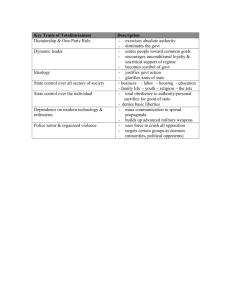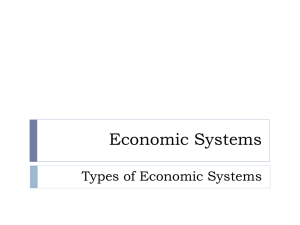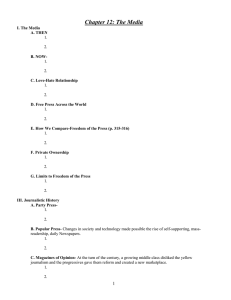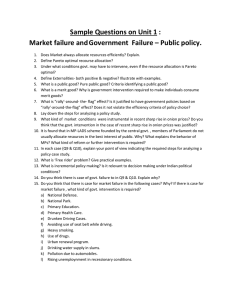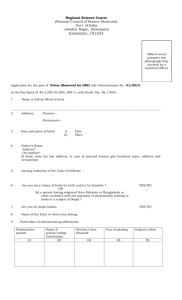introduction-production management
advertisement
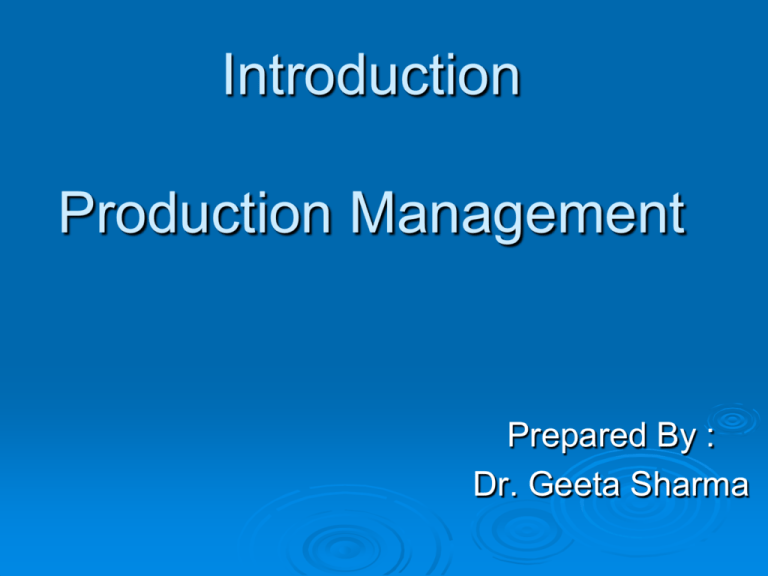
Introduction Production Management Prepared By : Dr. Geeta Sharma Business Survival Productivity Efficiency Business Survival Productivity Profitability Efficiency Profitability Depends upon: Cost minimization Quality improvement Product: Value of the product is more than the combined value of inputs used. Product Vs. Service: Services are invisible products Services are produced and consumed simultaneously Services cannot be stored Products may be perishable cut services can’t Production and Production management Production is the process of making the products. Different inputs like materials, human, capital and other resources are transformed into higher valued goods and services. “Production is a process by which goods and services are created” Production Management: Production Management is the process of effectively planning and regulating that part of an enterprise which is responsible for the actual transmission of material into finished goods. it includes: process of making decision Quality, Quantity and costs are main causes of concern for production manager. Scope / Functions of production management Production design and development of production process Production planning & control Purchasing Plan implementation Inventory Control Objectives PRIMARY Quality Quantity Cost/Price Time SECONDARY Men Machines Materials Services Techniques Production management in India Early years of independence Years of reforming India Early years of independence Business controlled by govt. Industries reserved by govt. or required license from govt. Investment by private and foreign individuals was negligible. Because of govt. intervention, no huge scale production Because of license raj: no competition, biased towards govt. owned companies against pvt. Businesses. Years of Reforming India Introduction of industrial policy 1991. Liberalization Govt. decontrol over business started. Govt. stake declined tn stages to 74% to 51%, to 49% and ever lesser than that in some cases. Entry of Private and Foreign industries reduce inefficiency Declining Protection of SSI as they were not doing well. Due to elimination og geographical boundaries in nation: volume of production grows, cost per unit come down, save in cost, large profits. Competition increases: beneficial for the customers: large variety of goods. Govt. bureaucracy ends Operations strategy Corporate vision and mission Organization strategy Operations Strategy Organization strategies focus on achieving corporate objectives by utilizing a company’s current strengths and identifying capability to improve the company’s competitive position. Operations Strategy should be flexible enough to support a product or service through its entire life cycle and able to accommodate future changes. Should be consistence with the strategies of other departments. Strategic planning is concerned with long term planning and involves sections of target market and distribution channels. Assignment Case study of tata global Indian Textile Industry’s Global Flight Evaluate the system of Japanese Manufacturing in detail.
